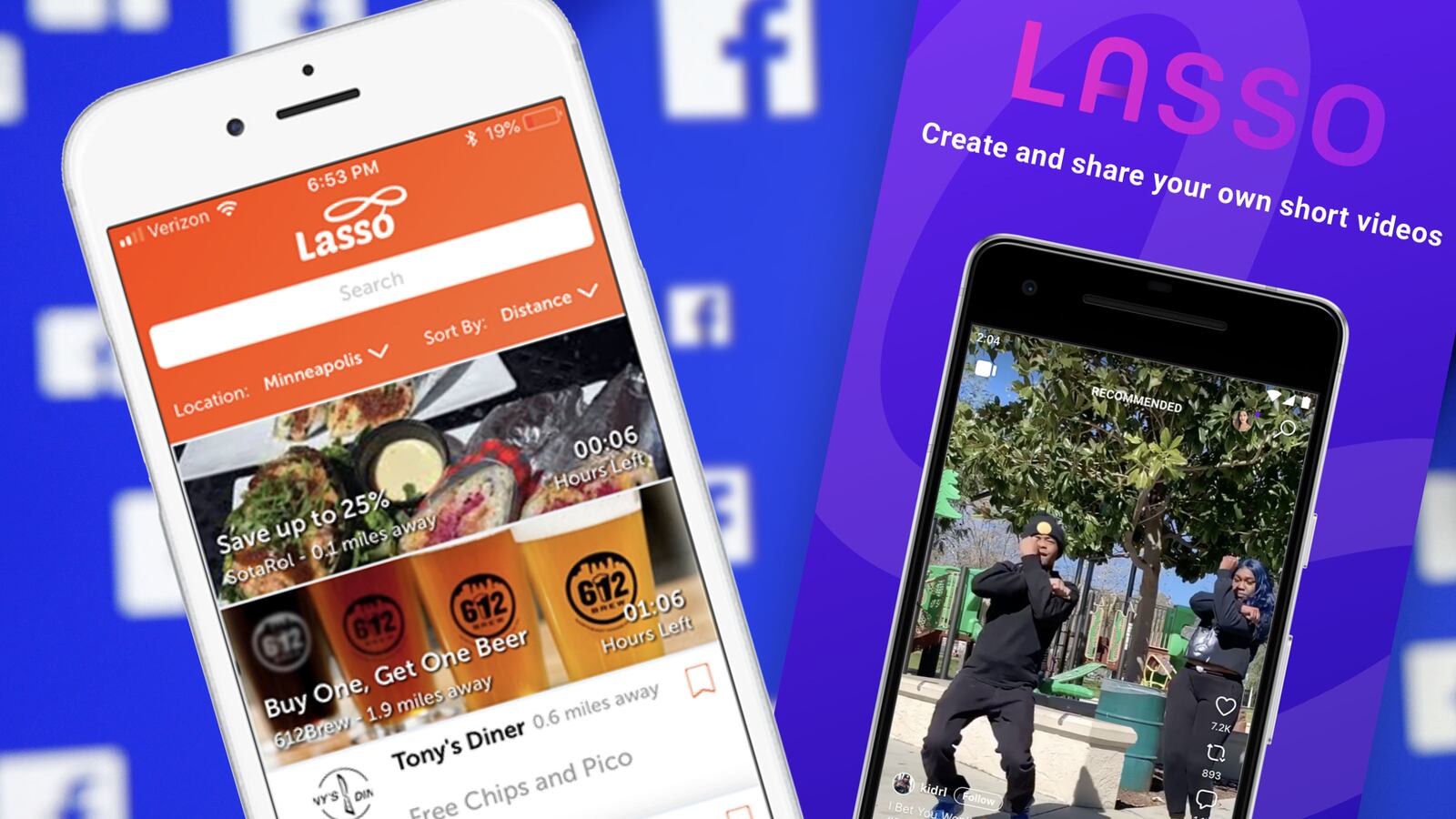Blair Sargent knew something was wrong when people kept downloading his app and quickly deleting it. In 2017, Sargent launched a social media app called Lasso, partnering with local businesses to encourage people to meet up in person while earning perks like free drinks.
In the summer of 2018, Sargent's company began to concentrate on local college markets in the Twin Cities, drumming up interest mostly through Facebook and Instagram ads. A few months later, Facebook launched its own app by the same name. New users instantly flooded Sargent’s app but left quickly when they realized their mistake.
His app’s retention numbers tanked, sending ad costs up as he scrambled to compensate for Facebook’s big launch. By this time, he had already sunk more than $12,000 into Facebook ads for his project. "We fell down the app store search rankings and ultimately our marketing costs increased significantly," Sargent told The Daily Beast. "Our plan was to expand to several new university markets this summer, but with the additional costs it doesn’t seem feasible."
In a trademark suit filed this week, Sargent and his co-founder argue that Facebook was "directly aware" of the existing Lasso app “more than a full year after Lasso began using its mark in commerce and after Lasso had paid Facebook to advertise the same mark.” As Sargent told the Minneapolis Star Tribune, Lasso was actually his second choice of name for the app—the first, “RoundmUp,” infringed on an existing trademark.
Sargent described how he and his co-founder first reached out to Facebook in December 2018 but found Facebook unwilling to have a "productive conversation" toward a resolution. "I want Facebook to stop using the name," Sargent said. “I think we’ve built a nice, recognizable brand for ourselves in the Twin Cities [and] I didn’t want to have to file suit. We weren’t left with much choice.”
The Facebook app Lasso is widely regarded as a clone of TikTok, the chaotic, wildly popular short form video sharing app. Historically, many of Facebook’s popular social features were conceived to copy competitors, most notably Facebook’s 2016 launch of Instagram Stories which cloned the main feature of Snapchat—then regarded as an existential threat to Facebook's business.
The practice of two startups with the same name isn’t unheard of—there are only so many buzzy words in the English language, after all—though it's less often that a major tech company barges ahead without clearing a path for a new brand. And if a major tech company like Snapchat can't even protect itself from giants like Facebook, small business owners are left with even less recourse. The Daily Beast reached out to Facebook about the lawsuit but the company did not respond to our request for comment.
Lasso's launch highlights Facebook's infamously cutthroat practice of forging ahead and besting the competition at any cost. That kind of behavior is one thing presidential hopeful Sen. Elizabeth Warren has decried as anti-competitive among tech industry giants. “They’ve bulldozed competition, used our private information for profit, and tilted the playing field against everyone else,” Warren wrote in her proposal to break up big tech. “And in the process, they have hurt small businesses and stifled innovation.”






